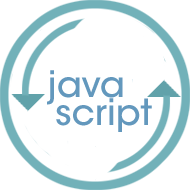Internet Standards Organizations

Internet standards help ensure that different technologies can communicate and work together. They also enable businesses and individuals to develop their products using a consistent online experience. These standards define a set of rules and requirements that all participants must adhere to.
IETF is open to the public and anyone willing to make the necessary commitment of time and expertise can participate. The group uses a formal process to create its standards, which are published in the RFC series.
IETF
The Internet Engineering Task Force (IETF) is responsible for creating the standards that allow devices, applications and services to communicate over the internet. The IETF uses an open process to develop internet protocols and holds public meetings three times per year. These meetings are attended by thousands of participants from all over the world.
IETF activities are centered in working groups, which consist of people who share a common interest in a specific aspect of the internet. Each WG has its own mailing list and conducts its day-to-day work through Internet-Drafts. Over time, the WG shapes these Internet-Drafts into RFCs, which become IETF standards. The IETF also has an Architecture Board that oversees the overall architecture of the internet.
Unlike many other standards organizations, the IETF makes all its documents available for free. It also charges a minimal fee for attending a meeting, with options in place to prevent this from becoming a barrier to participation.
IRTF
The IRTF is composed of a number of focused and long term Research Groups that work on topics related to Internet protocols, applications, architecture and technology. The groups have stable long term membership to promote collaboration and teamwork in exploring the research issues. Participation is by individual contributors, rather than by representatives of organizations.
The activities of the IRTF are primarily focused on researching the longer term aspects of the Internet. These include evaluating the impact of new technologies on the Internet architecture, defining enabling protocols and research into underlying technical aspects of the protocol stack. The IRTF also supports activities that foster interaction between the academic world and the Internet standards community, such as the ACM/IRTF Applied Networking Research Workshop and the Applied Networking Research Prize.
The IRTF is managed by the IRTF Chair in consultation with the Internet Research Steering Group (IRSG). The IRSG membership includes the IRTF chair, the chairs of the various IRTF research groups, and other individuals (“members at large”) from the research community selected by the IRTF chair.
IAB
The IAB is responsible for creating the standards that professionals in digital advertising use. These standards are designed to ensure that advertisers follow certain legal guidelines, such as preventing consumers from being harmed by pop-up ads or other unwanted content. The IAB also helps to ensure that advertisements comply with privacy laws.
IAB’s new standard ad portfolio focuses on flexible and LEAN ads that are optimized for speedy rendering performance. This will improve the user experience and increase ad revenue for publishers. In addition, it will help to reduce ad fraud and protect consumer privacy.
The IAB’s Transparency & Consent Framework supports publishers, advertisers, and tech vendors in meeting GDPR compliance by clearly displaying the user’s consent to data processing on their websites. This differs from the plugin-based model used by Secure Privacy, which can block non-consented tracking vendors. Jared Campbell is a Network Architect at Akamai Technologies and previously founded White Box Optical Inc. He is a member of the Internet Engineering Steering Group and enjoys sailing and Middle Eastern percussion.
ISOC
The ISOC is an umbrella organization that facilitates discussions on Internet policy and standards. Its members include individuals, organizations and governments. It is also the parent corporation of the Internet Engineering Task Force (IETF). Its goal is to promote the open development, evolution and use of the Internet for the benefit of all people throughout the world.
Its membership includes non-profit and for-profit organizations, government offices and academic institutions. It also has a number of regional bureaus and local chapters worldwide. Its members are encouraged to participate in its activities, which include educational workshops and conferences. The society also provides support to innovative projects through the Beyond the Net Large Grants program.
The ISOC is the world’s foremost authority on Internet standards. Its work is a vital part of the Internet’s continued growth and global development. The Society’s mission is to ensure that the Internet remains a global technical infrastructure, a resource for human development and a catalyst for economic opportunity.